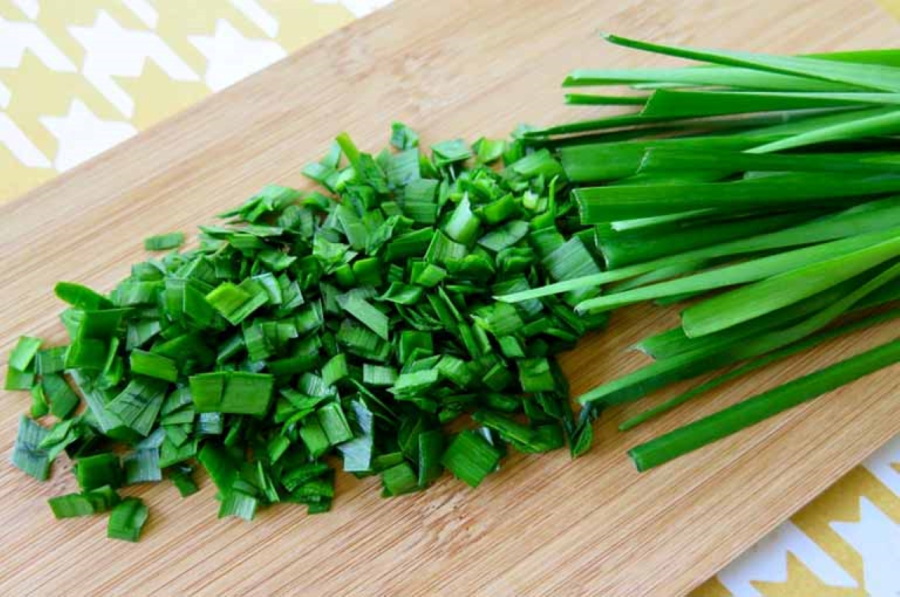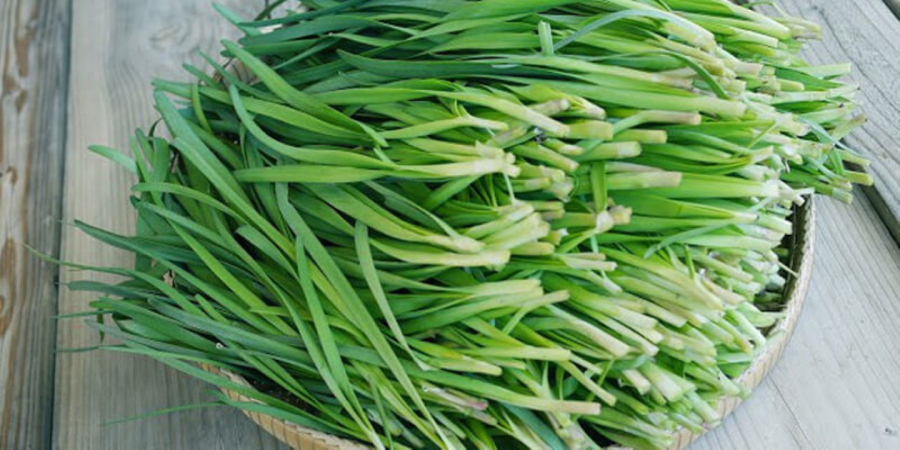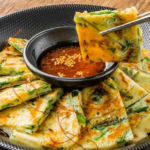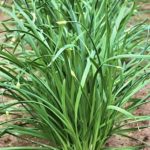Chives in Oriental Medicine
According to Oriental medicine, fresh chives are warm, but when cooked, they become temperate, have a pungent and slightly sour taste, are non-toxic, and enter the liver, spleen, and stomach meridians, with actions that warm the middle, circulate qi, and dispel toxicity, used to treat coughs in children, night sweats, frequent urination, poor digestion, and hemorrhoids…
In Oriental medicine, chives are referred to as “jiu tai”, a yang-promoting herb that has a pungent, warm nature, nourishes yang, breaks up blood, detoxifies, stops bleeding, and resolves phlegm… The book “Nam Duoc Than Hieu” by Tue Tinh uses chives in many formulas to treat bedwetting, cough, colds, cholera, and sudden asthma attacks…

“Chives are the warmest, beneficial to people, should be eaten regularly”
Oriental medicine considers chives to be a very good digestive aid, and they are now widely cultivated and harvested to be processed into dry spices. Europeans and Americans also use chives as a flavoring in salads under the name “garlic chives” to avoid bloating, flatulence, and diarrhea due to their strong antibiotic properties.
Chives in Modern Medicine
According to modern research, 1 kg of chives contains 5-10g of protein; 5-30g of sugar; 2g of vitamin A; 89g of vitamin C; 2.6g of calcium; 2.2g of phosphorus… Chives are high in fiber, which helps lower blood sugar, reduce blood lipids, prevent atherosclerosis, and protect the pancreas…
Chives are also rich in vitamin K, a vitamin responsible for your bone health. Bone demineralization is significantly prevented by regular chives consumption. Especially women are more prone to osteoporosis than men, so regular consumption of chives helps increase bone density, making bones stronger.
Chives are rich in B vitamins and important minerals such as copper, pyridoxine, iron, niacin, mandan, thiamin, calcium, riboflavin… These nutrients help support the proper functioning of functional organs in the body.
The water content in chives accounts for up to 85%, the calories are low, and it is a rich source of iron, potassium, and vitamins A and C. Therefore, chives are known as “The saltiness in vegetables”.
The moderate amount of beta carotene in a bunch of chives provides the necessary energy source for the body for a day. However, the amount of vitamin C and E provides only 1/3 of the daily requirement.
Chives contain antibiotic agents in their composition. Therefore, chives can treat scabies, impetigo, skin infections…
Chives also contain special components such as essential oils and sulfides, which create a pungent taste, have the effect of regulating qi, nourishing the liver, stimulating appetite, and enhancing the function of the digestive system.
The characteristic aroma of chives is due to the sulfide that is produced. This substance has the effect of anti-inflammatory, antibacterial, and enhancing the body’s resistance.
The pungent taste of chives has the effect of stimulating blood flow, promoting smooth flow of qi, and treating nausea, enteritis, vomiting of blood, chest pain, or trauma.

Chives are considered as antibiotics
Chives as Antibiotics Stronger Than Penicillin
Chives contain strong antibiotic agents such as allicin, odorin, sulphite, which are stronger than the antibiotic Penicillin, and can fight staphylococcus and many types of pathogenic bacteria such as Streptococcus hemolyticus, Salmonella tryphi, Shigella flexneri, Shigella shiga, Coli bethesda, Bacillus subtilis…
Thanks to that, they can treat scabies, impetigo, and skin infections by applying crushed leaves to the wound; convenient for treating pinworms in children without fear of side effects of modern medicine.
In case of painful gingivitis, chives can also be used to fight inflammation and kill bacteria by crushing them and holding them in the mouth. Children with ear infections can put chive juice in their ears to kill bacteria.
Antibiotics in chives also kill vaginal trichomoniasis, making them an effective gynecological remedy for women with vaginal discharge, inflammation, and leukorrhea. In this case, women can use it by drinking the leaf juice and washing the vagina.

































